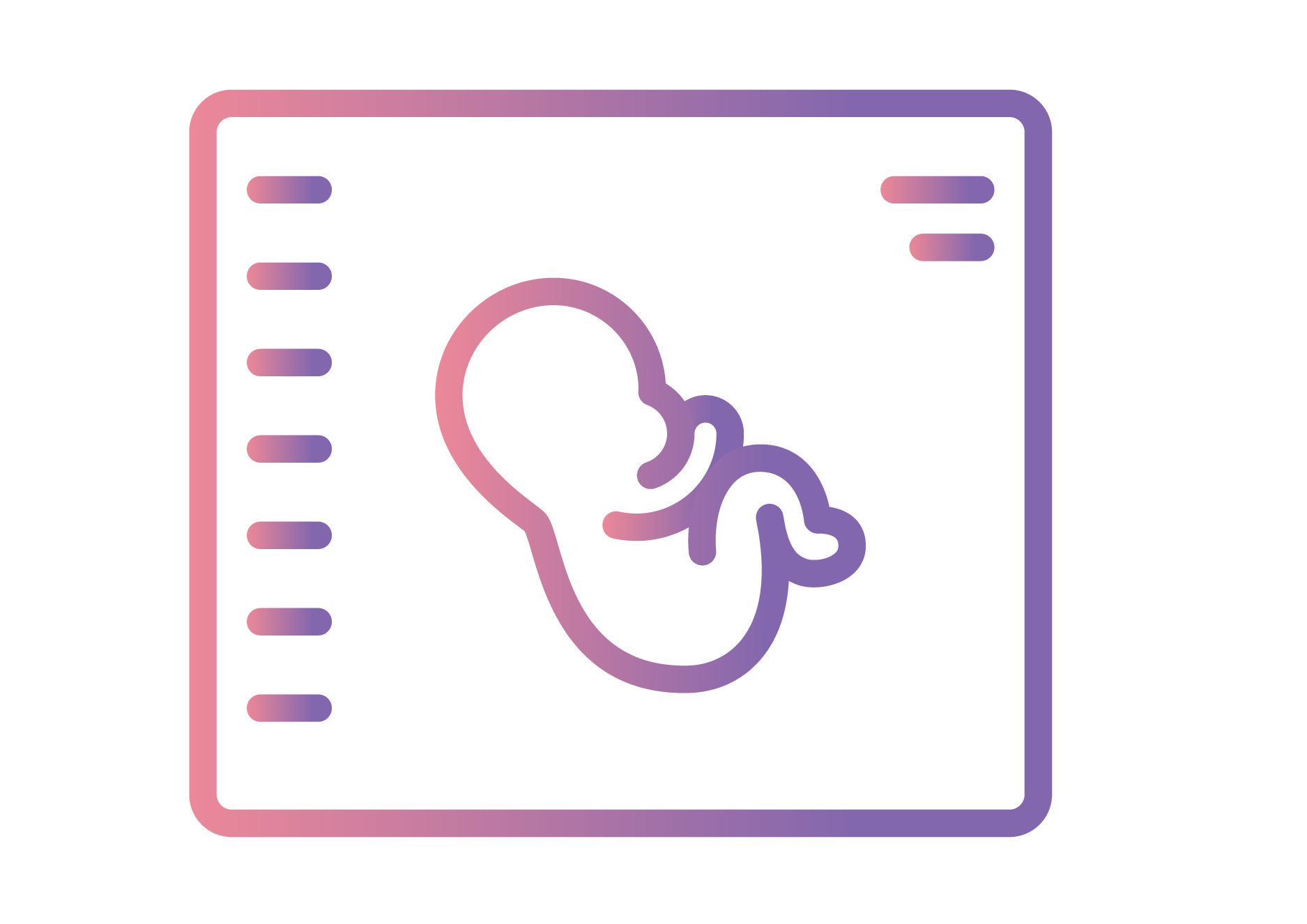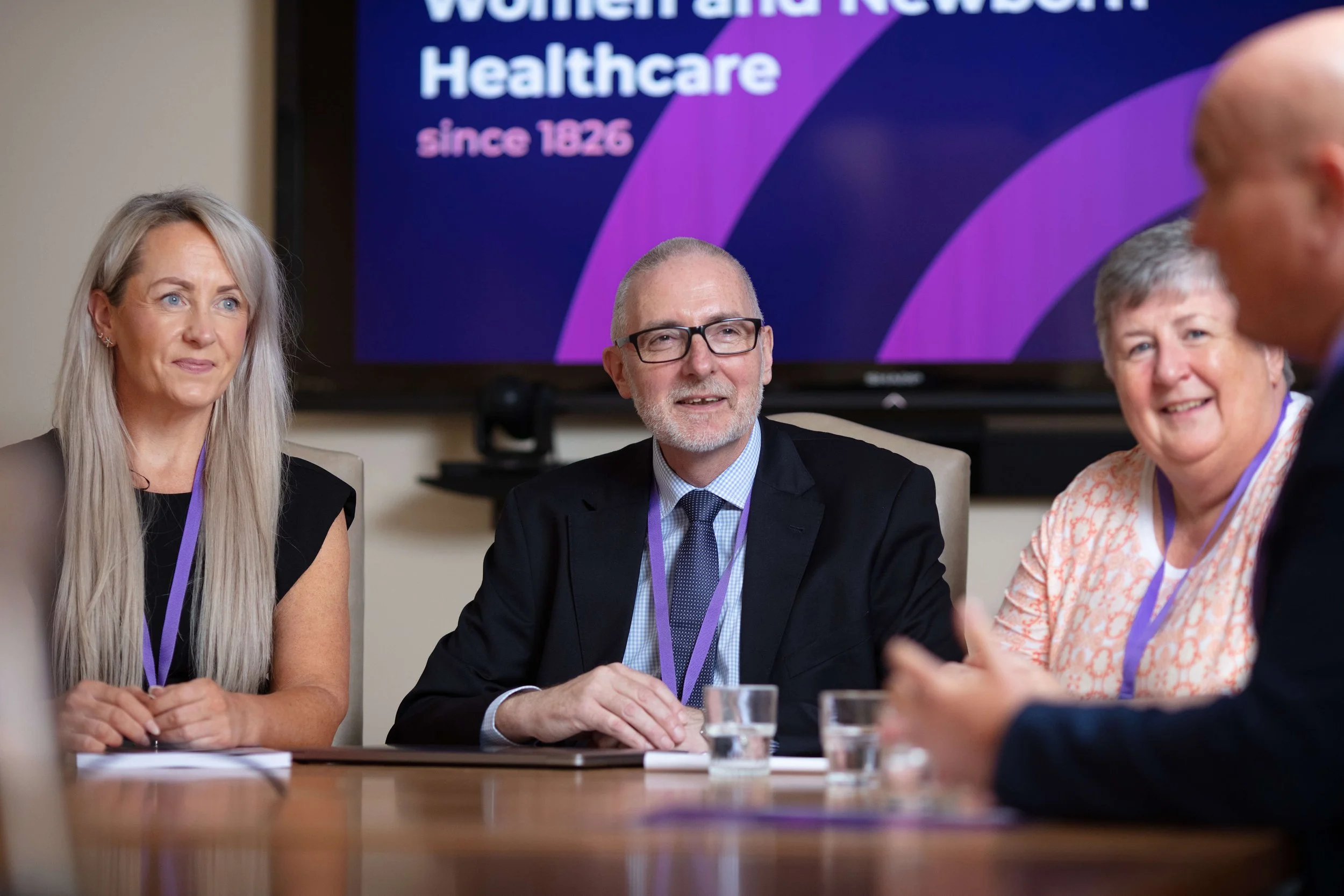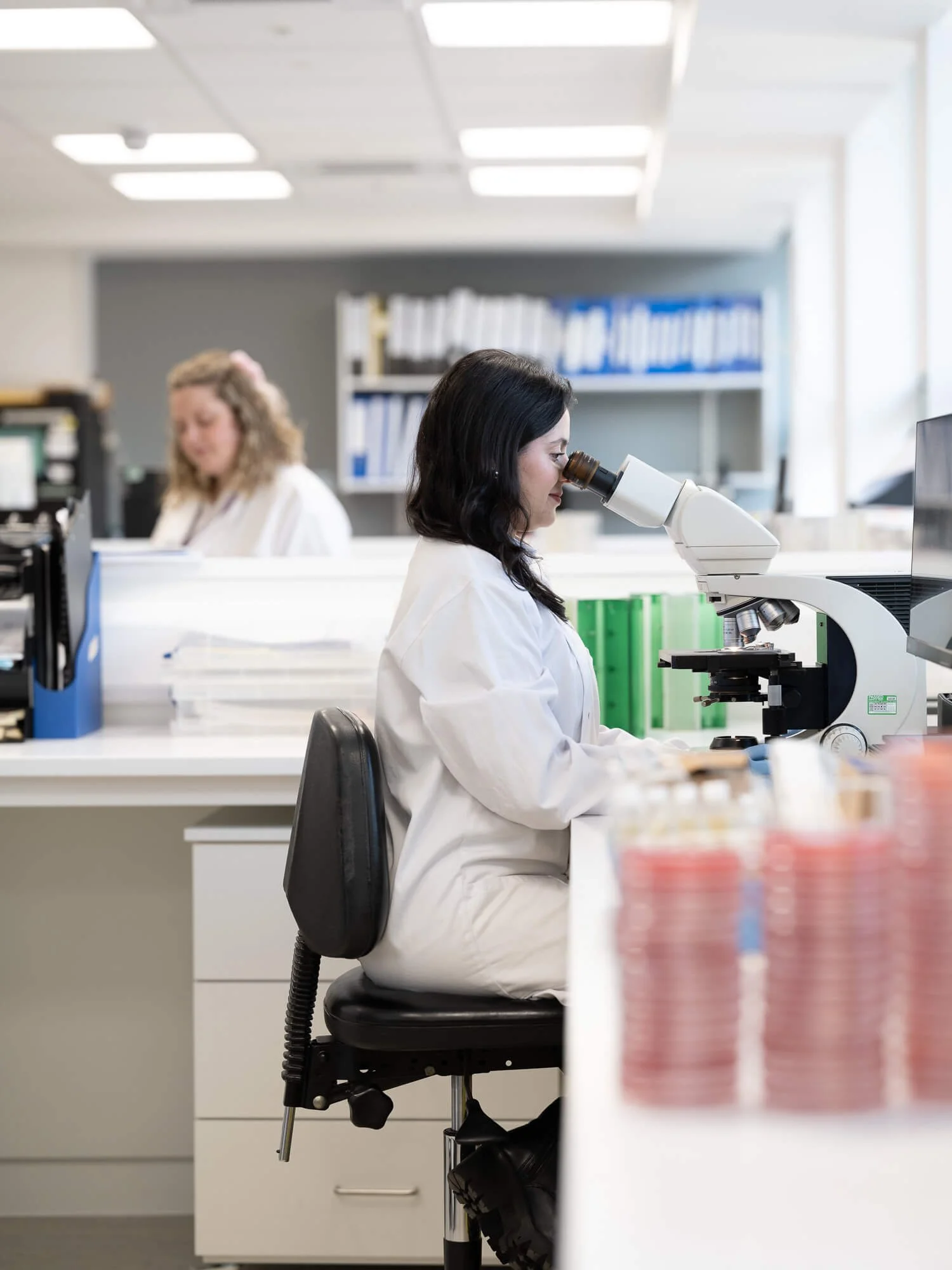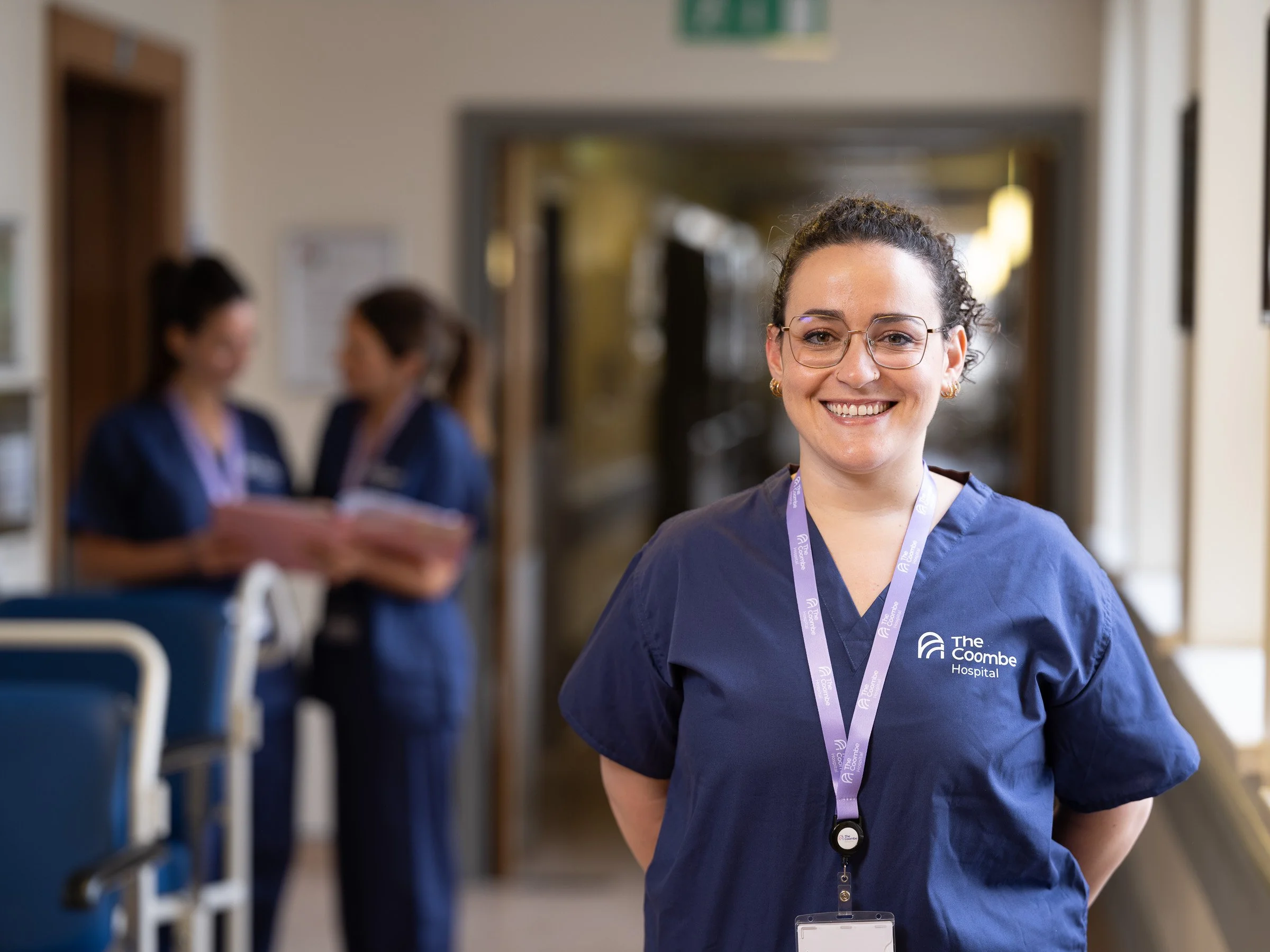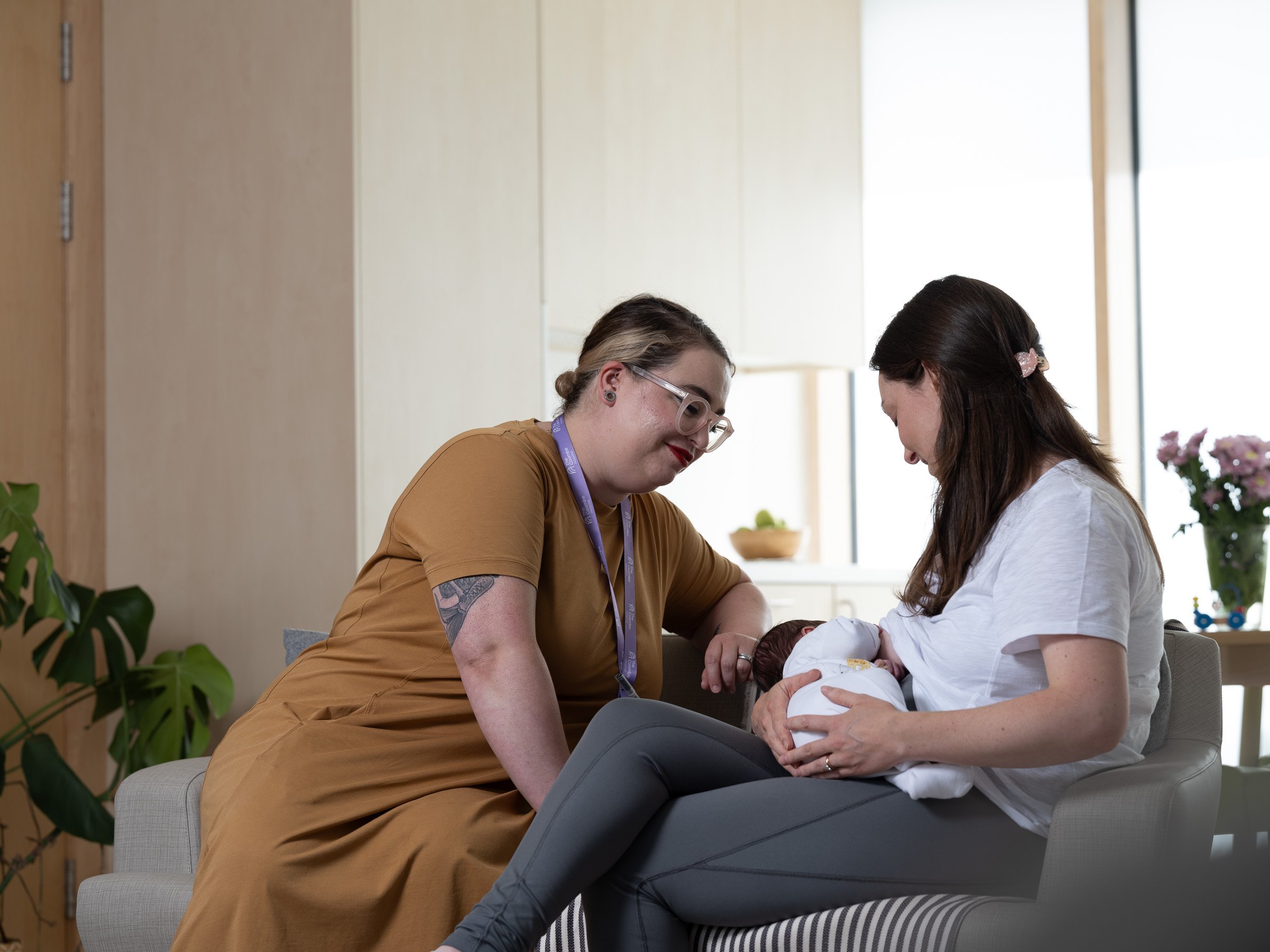

About Our Service
Our team of clinical midwife specialists, lactation consultants, physiotherapists and dieticians have created a suite of videos to support you in your breastfeeding journey. Topics covered include: preparing to breastfeed, the benefits of harvesting colostrum, positioning and attachment, signs of effective breastfeeding, common challenges, eating well, along with offering guidance on a number of techniques, such as hand expressing.
Breastmilk can be very beneficial to premature and sick babies. We have developed a series of videos especially for women who experience, or are at risk of, a pre-term birth - please click here.
Harvesting Colostrum
The below conditions or experiences may make breastfeeding more difficult. Harvesting colostrum towards the end of your pregnancy can be helpful to promote milk production and to feed your baby if you are unable to breastfeed right away.
If you would like to discuss further, or if your antenatal team has recommended colostrum harvesting, please contact the Infant Feeding Department on 01 408 5761 when you are 34 weeks pregnant.
Watch the HSE’s video on colostrum harvesting here, featuring our clinical specialist midwife in lactation, Kathy Cleere.
Remember, breastfeeding is a learned skill - both for you and your baby. Being prepared and reaching out for support if you need it is key to a positive experience.
A special thank you to all the mothers and babies who participated these videos. We couldn’t have done it without you.
Preparing To Breastfeed
In this video, we discuss:
How your breasts change during pregnancy to feed your baby.
Why breastfeeding is important for the health of your baby and for yourself.
How you can prepare for breastfeeding.
If there are concerns, how we can support you with the collection of colostrum before the birth of your baby.
The ‘Golden’ Hour
In this video, we discuss the ‘golden hour’ after birth, a time of uninterrupted skin to skin contact. Along with a host of other benefits, this skin to skin contact serves to stimulate your baby’s instinctive interest in feeding.
Positioning & Latch
In this video, we will show you how to help your baby to position and latch for effective breastfeeding.
Signs Of Effective Breastfeeding
In this video, we discuss how to recognise signs of effective breastfeeding and how to know if your baby is getting enough milk.
Common Challenges
In this video, we discuss common challenges experienced in the early days of breastfeeding, and how to address them.
These include:
A sleepy baby
Engorged, sore or cracked nipples
Cluster feeding
Mastitis
Eating During Breastfeeding
It’s important to fuel your body with healthy and nutritious foods to stay well and support your breastfeeding journey. In this video, we share tips for eating well during breastfeeding.
Colostrum Harvesting
In this video developed by the HSE, one of our clinical specialist midwives in lactation, Kathy Cleere, talks about the benefits of harvesting colostrum during pregnancy, who it is helpful for, and how to do it!
Global Health Breastfeeding Series: Attaching your Baby at the Breast
This video provides helpful tips to promote a deep latch, helping your baby to get more milk, and making breastfeeding a more comfortable experience for you both.
This video was created to support mothers in the developing world, but the content is helpful to breastfeeding mothers worldwide.
FAQs
-
Preparation is key - we recommend that you book into our online breastfeeding class by sending an email to classbookings@coombe.ie as a first step. If you require further support, you can contact our department directly.
-
Call our office and leave a voicemail from 34 weeks - we will need to have a telephone consultation to ensure it is safe for you to do so, and then we will leave a colostrum harvesting pack for collection. This is free of charge, so you don’t need to buy one privately. Please note we do need at least 3 days notice in order to prepare your pack for you.
-
Make sure your partner or family are aware of your choice so they can look after you once you are home. Practice plenty of unrestricted skin to skin with your baby as research shows this helps to increase your supply and may make the baby more interested in feeding at the breast. It takes patience and hard work to establish breastfeeding so accept all offers of help. Don't expect to get into a routine quickly, babies feed frequently in the early days and weeks until breastfeeding becomes established.
-
Your midwife is your primary caregiver on the ward and all our midwives are trained to support breastfeeding. If she feels there is an ongoing issue, she can send a referral to the lactation team and you will be seen the next day on the ward. Breastfeeding takes time to establish so do ask for help while you are here.
-
You will go home to the support of either the community midwives from The Coombe if you are in the catchment area, or to the care of your public health nurse, who will usually see you within 72 hours of home. You should receive our information sheet prior to home and you can also contact us with any issues that need follow up. We also offer a weekly postnatal clinic, by appointment only.
-
The hospital grade pump is useful to increase your milk supply if required, but we recommend that you call us to make a follow up appointment in the first two weeks so we can support you to transition to breastfeeding.
-
The evidence suggests that 70% of babies can successfully breastfeed with a tongue restriction. There are some babies who may require a frenotomy in our tongue tie assessment clinic. If it is identified on the postnatal ward, one of our lactation team will come and assess a feed and can refer you on to our clinic. If you have gone home and it is affecting your breastfeeding e.g. painful nipples, baby not able to feed, we need to assess your feeding first in our postnatal clinic, prior to referring you on. In many cases adjusting your position and latch can improve your breastfeeding.
-
We have specialised lactation consultants in the NICU who will guide, support and prepare you both for the transition home.
-
My Pregnancy book available from mychild.ie
HSE - Breastfeeding: A good start in life
The Coombe Hospital: Breastfeeding Your Baby
Bottle Feeding
If you choose to combination feed, or exclusively bottle feed your baby, we recommend that you visit the HSE website and read the information on the following:

Departments & Services

Help & Support
-
Appointments:
All appointments can be directed through Hospital reception: 01 408 5200, 24 hours a day -
Health Insurance:
We operate a direct payment scheme with VHI, Laya Healthcare, Irish Life Health, Garda Medical Aid, ESB, Medical Provident Fund, and Prison Officers Medical Aid. If you are covered by any of these insurers, the relevant insurance forms are signed electronically on your admission to hospital.
Fees:
For more information on Fees - visit our Hospital Charges page -
-
The Resource Page:
Browse our collection of patient resources, brochures, and information leaflets—all in one place. Downloadable and easy to access, these documents cover everything from appointments and procedures to maternity, newborn care, and more.
Contact Us
Tel: 01 408 5200
Find Us
The Coombe Hospital
Switchboard:
Location:
Cork St, Dublin, D08 XW7X

















